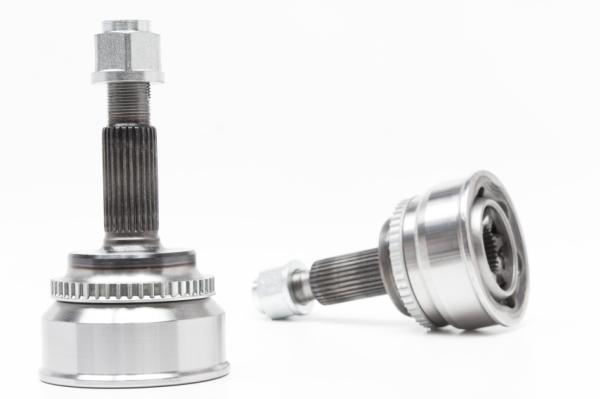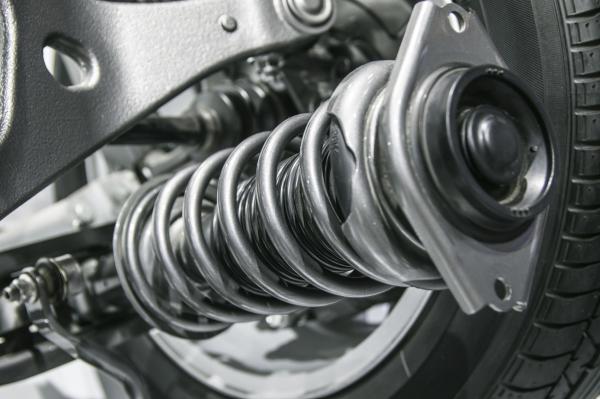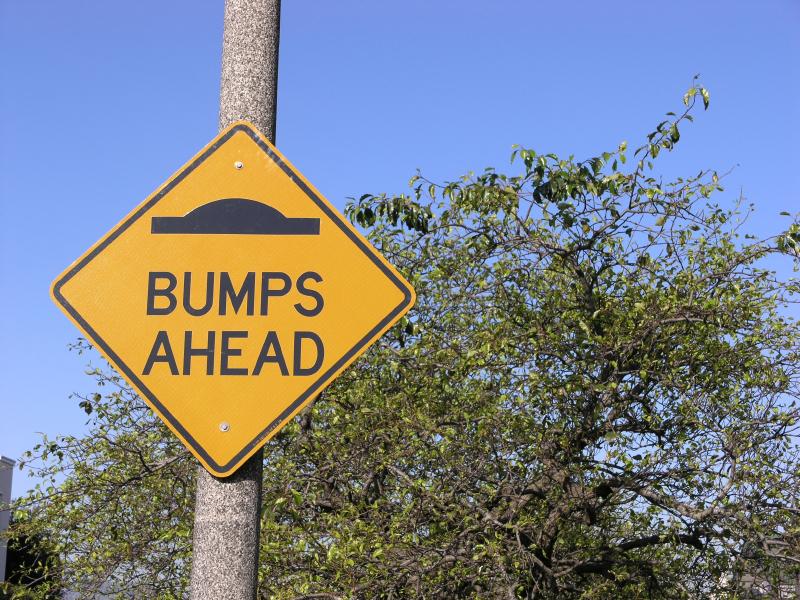Why is my Car Squeaking when I Go over Bumps - Possible Causes


When you go over bumps on the road, you may sometimes hear a squeaking noise coming from either side of your car. Equally, you might hear a squeak from underneath in the chassis. This noise is not only embarrassing, as everyone around you turns their head to see your car, but can be a sign that there is something seriously wrong. This can lead to damage to the vehicle or even result in an accident. Read this oneHOWTO article if you want to know the reason why this problem happens and find out why your car squeaks when you go over bumps.
Possible cause of the squeaking
Ball joints or rubber bushings
A squeaky sound may be caused by the connecting ball joint or rubber bushing being worn out. Ball joints are connections in which a metal ball is trapped inside in a cup lubricated with grease. Most ball joints are not lubricated externally. If the grease gets old or leaks out, the joints can start squeaking.
Bushings are designed to prevent individual parts from vibrating and causing damage. Rubber bushings are common on a car's suspension. If they are faulty, broken or non-existent, then the vibrations may cause damage which leads to squeaking. Most rubber bushings are not lubricated and have to work dry only. Over time, the rubber shrinks, cracks or dries and starts squeaking whenever the suspension moves. Checking your bushings regularly is helpful in preventing damage further down the line.
Faulty suspension parts
Another possible cause is that another part of your suspension is either damaged or broken, which is a more serious problem than the first. The suspension is composed by many smaller parts that are connected by axles, making them difficult to access. If any of these parts are faulty, it can lead to squeaking sounds coming from the suspension.
Faulty suspension is why the car might squeak when going over bumps. The suspension is there to stop shocks damaging the vehicle when going over bumps or uneven ground. If they are faulty, the bumps will cause issues. Shock absorbers are part of the car's suspension. If they do not work, they can lead to squeaking.
The problem will depend on the type of absorber. If they are hydraulic, then they may have air problems, oil leakage or another issue. Spring absorbers may have rusted or been broken in a high impact. Isolating the absorber and confirming the problem is vital. If you want to know more, read up on how to replace a shock absorber in your car.
Steering wheel control arm
While the most likely problem when your car squeaks going over bumps is to due with suspension, there are other issues. The problem might actually be close to where you are seated. The steering wheel control arm might be loose or faulty. When you go over a bump, the force causes the wheel to squeak. You can try to listen closer to the steering wheel, although it can be difficult to know where the squeak is coming from.

How to identify the problem
It is very difficult to identify which bushing or ball joint is causing the squeaking noise. Most of the time, when the vehicle is still, the suspension does not move the way it does when it is running. This makes it much harder to identify the part that is causing the problem.
Here is some help to try to identify a suspension problem in your car:
- Park your car on a level surface.
- Block all the 4 wheels to make sure that the car does not roll away.
- Ask a friend to bounce every corner of the vehicle. Make sure that the car’s body panel does not get damaged or dented during the process.
- The car should rock so that you can hear the squeaking noise. You may need to bump, push, pull and bounce to actually create the squeak that you hear while driving.
By doing this, you will at least be able to narrow down the area from where the noise is coming. If you hear a noise when the wheel is turned, it is possible you have a problem with a worn out control arm. Ask someone to turn the steering wheel with the car safely parked. If you hear the squeaking coming from here, then this is more likely than a suspension problem (although it's possible they are happening concurrently).
You can tell if ball joints are bad or are worn by noticing if you have uneven wear in your tires. This will lead to your car pulling in one direction or the other. Uneven wear can be a symptom of various problems, not only suspension. Check with your mechanic to confirm what it might be.
How to fix the squeaking sound
Once you have narrowed down the location, you can start checking the exact component that is causing the noise.
For squeaking ball joints
Ball joints are generally hard wearing, but they can become loose or damaged if the suspension takes a lot of hits. Equally, they can become damaged by weathering or caustic substances reaching them. The ball itself sits inside a casing which needs to be well lubricated. If there is a leak or some other problem you will not only need to lubricate the joint, but also fix the leak.
One of the reasons why the ball joint might leak is because of a broken rubber boot/dust cover. Many people think they will need to get a new ball joint, but you can buy new rubber boots easily. They come in packs of various sizes, so you will just need to try the one which fits best. Grease the joint while you have taken the old rubber boot off and then attach the new one.
For broken rubber bushings
Similar to the rubber boot for the ball joint, the rubber bushings can be replaced. If the bushing itself isn't broken, it may need lubrication. You can tell by looking at the brushing and seeing if it is dry or cracked. Lubricate the bushing with some oil, using a nozzle which allows you to penetrate into small gaps. Ideally you should take the bushing off and lubricate it on the inside.
If the squeaking noise goes away, then the problem might be fixed for the time being. However, if the rubber bushings are cracked or damaged, then they will only continue to wear. Eventually, you will likely need to replace them. This is something which is fairly easily done. Screw the cap off with a wrench and then take off the bushing. You should be able to see the bushing and how damaged it is. Simply replace the bushing and screw the cap back on. For more detailed information, take a look at our article on how to lubricate rubber bushings.
For other suspension related problems
If you have discounted the ball joints or bushings as the source of the problem, it is best you do not attempt to further investigate where the source comes from due to difficulty accessing the parts. It is best you take your car to a garage when you can so a professional mechanic can see why your car squeaking. Changing the steering wheel control arm is something which will take a lot of work and should not be done by the uninitiated.

If the sound persists, bring the car to the mechanics
The car's suspension has many parts and some will require a trained mechanic to fix or replace. However, you should always try to see if you can get an idea of the problem yourself first. This way, you can best avoid unscrupulous mechanics who try to charge you for more work than is needed (although these are fortunately in the minority).
To help you know what is wrong, you should find out when to change your car's suspension. If, regardless of what you've done you still hear the sound, it is better to bring your car to a professional mechanic for a complete service.
If you want to read similar articles to Why is my Car Squeaking when I Go over Bumps - Possible Causes, we recommend you visit our Car Maintenance and Repair category.






